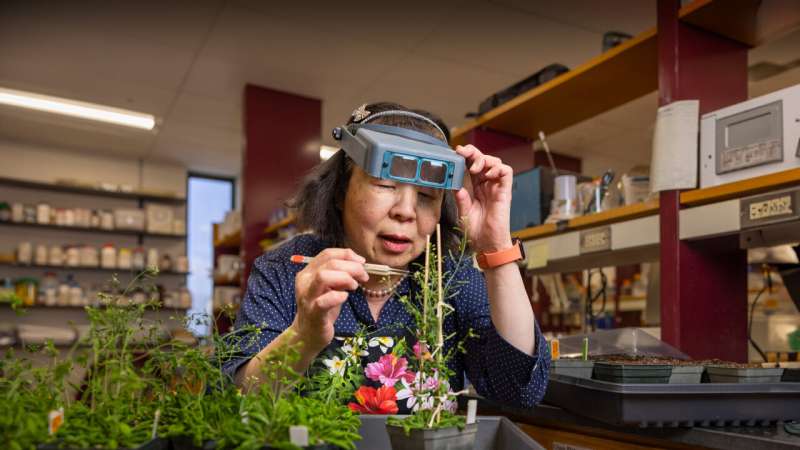A recent study conducted by researchers from the University of Massachusetts Amherst and Shandong Agricultural University has made significant strides in understanding plant breeding mechanisms. Published in Science on November 21, 2025, the research focuses on the complex process that governs how plants recognize and interact with pollen from different species within the same family.
The study investigates a phenomenon known as “interspecific incompatibility” (ISI), which prevents certain species, such as broccoli and kale, from hybridizing. This process is crucial for maintaining genetic diversity and enhancing crop traits, ultimately contributing to food security. According to Alice Cheung, a Distinguished Professor of Biochemistry and Molecular Biology at UMass Amherst and a senior author of the research, the molecular workings of ISI have remained largely unexplored compared to self-incompatibility systems.
Understanding Interspecific Incompatibility
Many flowering plants have evolved mechanisms to avoid inbreeding through self-incompatibility, which allows them to reject pollen from closely related species. However, the challenge arises with pollen from more distantly related species within the same plant family. The research team utilized the Brassicaceae family, which includes economically important crops like cabbage, broccoli, and canola, to delve deeper into ISI.
Cheung and her colleagues have made headway in deciphering the communication between different plant species during the pollination process. Their findings reveal that a protein known as SRK plays a crucial role in recognizing chemical signals from pollen grains. When pollen from a different species, such as the model plant Brassica arabidopsis, arrives at the pistil, the SRK protein identifies specific signals, known as SIPS, and triggers a rejection response.
Implications for Crop Breeding
The research highlights a previously unclear interaction involving the SRK protein and another enzyme called FERONIA, which is also a focus of study for Qiaohong Duan, a co-senior author from Shandong Agricultural University. This interaction leads to the production of reactive oxygen species (ROS), which effectively prevents the pollen from entering the pistil and fertilizing the ovule.
In addition to elucidating the mechanisms behind ISI, the researchers propose a novel breeding strategy aimed at overcoming pollen incompatibility within the Brassicaceae family. This approach could expedite the development of new crop varieties with improved traits, addressing agricultural challenges and enhancing global food security.
The findings from this study represent a significant advancement in plant biology and breeding science, offering potential pathways for the creation of hybrid crops that could yield better resilience and productivity in diverse growing conditions. As agricultural demands increase, understanding and manipulating these biological processes will be critical for future food sustainability.
The full research paper, titled “Pan-family pollen signals control an interspecific stigma barrier across Brassicaceae species,” is accessible in the journal Science.




































































